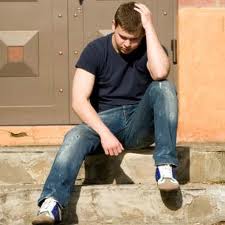When you feel down in the dumps, you can feel like it’s never going to end. It’s important to know the difference between a sadness day and depression. You can use these signs to figure out what is actually going on. Be sure to talk to your doctor about it if you are concerned.
How to Feel Better After a Sadness Day
 Sometimes when you are in a sadness mood, you may feel better by crying a little. If you are depressed, you may not know why you are crying, and you may cry more often than usual. If you find yourself crying and you do not understand why, it is important to check with your doctor about it. If it is not normal for you to experience such emotions, talking to your doctor can help you understand the cause.
Sometimes when you are in a sadness mood, you may feel better by crying a little. If you are depressed, you may not know why you are crying, and you may cry more often than usual. If you find yourself crying and you do not understand why, it is important to check with your doctor about it. If it is not normal for you to experience such emotions, talking to your doctor can help you understand the cause.
Having a Sadness day can make you feel sad, but it usually fades with time. If you find yourself dealing with sadness that just will not go away, you may be dealing with depression. Lingering sadness is a terrible thing to deal with, especially if you do not really understand why you are so sad. These feelings are a sign that something more serious may be going on, so pay close attention to them.
Depression can cause changes in your life that you may not realize at first. Losing interest in things you previously enjoyed doing often happens when you are depressed. For example, if you enjoy reading, but suddenly find yourself disinterested in your favorite books, it may be time to see your doctor. Doing so may help you find the cause, and get the pleasure back in activities you love.
Emotional changes are not the only ones you may experience in dealing with depression. Physical symptoms are common as well. One such change affects your appetite. This change can occur in either direction. If you suddenly do not feel like eating at all, or you find yourself eating much more than normal, see a physician. As with other symptoms, there may be another cause, but it is imperative that you take care of your health.
The Physical Effects of Depression
Another possible physical effect of depression is feeling physically tired. Depression can sap your energy, making you feel like you have not had sleep in days. While everyone feels tired occasionally, it is not typical to deal with this every day. If you are getting plenty of rest but still feel exhausted, talking to your doctor can help you figure out what the culprit is.
In some cases, people who have depression do not go to the doctor because they feel as if it will do no good. This is actually a symptom of the disease. Hopelessness is fairly common in people suffering from depression. You may feel as if exercise is a waste, people do not care, or that you do not matter. Rest assured, this is not the case. See your doctor before these feelings get unbearable, and you will find that there really is help.
Sleep is one thing that tends to help people with depression. However, depression can actually disrupt your sleep, or change your regular sleeping schedule. When this happens, it should be taken as a symptom of the disease. In some cases, you may find yourself sleeping more and more throughout the day, while only getting a few hours at night. Whatever your typical sleep pattern is, if it changes, it is time to talk to a professional.
If you are having difficulty paying attention to your work, understanding your studies, or listening to others speak, you may be dealing with concentration problems brought on by depression. Depression not only affects you emotionally and physically, but can challenge your mental acuity. Concentration issues are common for those dealing with the disease, and your doctor can work with you to find ways to improve them.
Depression is not a “one size fits all” disease. A person with depression may find that all or only some of these problems fit them. These symptoms are meant to help you differentiate between a regular bad day and a true bout of depression. No one is immune to depression, as it can hit anyone, of any status, for any reason. If you think the previous symptoms matched your issues, see your doctor for more help.